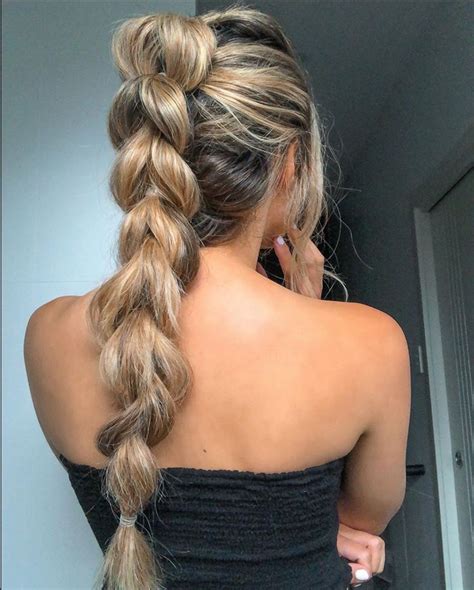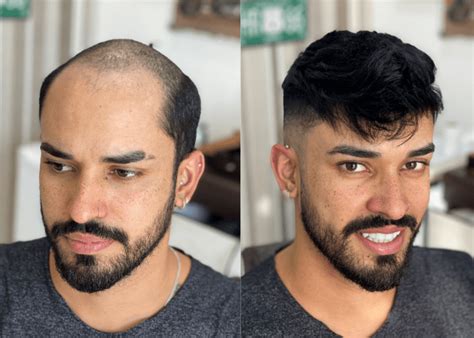A male hair system, often known as a toupee, hairpiece, or wig, has emerged as a groundbreaking solution for hair loss, providing men with a natural-looking, customized hair replacement option. With hair loss affecting an estimated 50% of men by the age of 50, male hair systems have revolutionized the way men address hair thinning and baldness.

Understanding Male Hair Systems
Hair systems consist of a base, which can be made from a variety of materials such as lace, monofilament, or polyurethane, and a hairpiece attached to the base. The hairpiece is meticulously crafted from natural or synthetic fibers, offering a wide range of hair colors, textures, and styles to perfectly match the individual’s hair. Due to the vast customization options, male hair systems can be tailored to meet each wearer’s unique needs.
Why Choose a Male Hair System?
-
Natural Appearance: Modern male hair systems are meticulously designed to replicate natural hair growth, allowing men to regain a full, healthy head of hair with an unnoticeable transition between their own hair and the system.
-
Customized Solutions: With a wide array of base materials, hair textures, and styles available, hair systems can be customized to suit each individual’s facial shape, lifestyle, and personal preferences.
-
Increased Confidence: Hair loss can significantly affect a man’s self-esteem and confidence. A well-fitted hair system can restore a man’s confidence and empower him to feel more comfortable in both personal and professional settings.
-
Versatility: Male hair systems allow for a wide range of styling options, including cutting, coloring, and styling, providing men with the freedom to experiment with different hairstyles and looks.
-
Convenience: Unlike hair transplants, which require multiple surgical procedures and a lengthy recovery period, hair systems offer a non-invasive and convenient solution for hair loss.
Types of Male Hair Systems
Lace Hair Systems: These systems feature a lace base, which is known for its breathability and natural appearance. This type of system is often preferred for men who want a discreet and comfortable option.
Mono Hair Systems: Made from a single layer of monofilament, mono hair systems are lightweight and provide excellent ventilation. They are suitable for men who desire a natural hairline and a realistic look.
Polyurethane (PU) Hair Systems: PU hair systems are characterized by their durability and affordability. They are made from a polymer material that is strong and resistant to wear, making them a popular choice for active men.
Choosing the Right Male Hair System
Selecting the appropriate male hair system requires careful consideration of the following factors:
-
Base Material: Decide on the base material that best suits your comfort level and lifestyle, considering factors such as breathability, durability, and appearance.
-
Hair Texture: Match the hair texture of the system to your natural hair to achieve a seamless blend and a natural look.
-
Hair Style: Choose a hair system that complements your facial shape and personal style, considering factors such as volume, length, and color.
-
Consultation: Seek a consultation with a hair expert to discuss your hair loss concerns, lifestyle, and desired outcome. A professional can provide personalized recommendations and assist you in selecting the ideal hair system.
How to Care for a Male Hair System
Proper care is essential to extend the lifespan and maintain the appearance of a male hair system. Here are some essential care tips:
-
Cleaning: Wash your hair system regularly using a mild shampoo specially formulated for hairpieces. Avoid harsh detergents or hot water.
-
Conditioning: Condition your hair system after washing to keep the hair soft, detangled, and manageable.
-
Drying: Allow your hair system to air dry naturally or use a blow dryer on a low heat setting. Avoid rubbing or brushing the system when wet.
-
Combing: Use a wide-tooth comb or brush to gently comb your hair system, starting from the ends and working your way up to the roots. Avoid over-combing, which can lead to damage.
-
Styling: Style your hair system as desired using hairspray, mousse, or other styling products. Avoid using oil-based products, as they can clog the base material.
Tips and Tricks for Male Hair Systems
-
Secure Attachment: Use a high-quality adhesive or bonding agent to securely attach the hair system to your scalp.
-
Change Base Regularly: Replace the base of the hair system every 3-6 months to maintain optimal breathability and hygiene.
-
Protect from Heat: Avoid exposing your hair system to excessive heat, as it can damage the base material or the hair fibers.
-
Regular Maintenance: Visit a hair salon regularly for professional cleaning and maintenance of your hair system.
-
Consultation: Consult with a hair expert if you experience any discomfort, itching, or skin irritation while wearing the hair system.
Pros and Cons of Male Hair Systems
Pros:
- Natural Appearance
- Customized Solutions
- Increased Confidence
- Non-Invasive Procedure
- Versatile Styling Options
Cons:
- Cost: Male hair systems can be expensive, depending on the type of system chosen and the maintenance costs.
- Maintenance: Daily care and regular maintenance are required to maintain the appearance and lifespan of the hair system.
- Durability: Hair systems are not meant to last forever, and the lifespan varies depending on the quality of the system and proper care.
- Social Stigma: Some individuals may experience social stigma associated with wearing a hair system, although this is becoming increasingly rare.
Conclusion
Male hair systems have emerged as a sophisticated and effective solution for hair loss, empowering men to regain a full, healthy head of hair. With advancements in hair restoration technology and a growing acceptance of hair systems, men now have access to a wide range of options to combat hair loss and restore their confidence. By carefully selecting and maintaining a male hair system, individuals can achieve a natural-looking, customized hair replacement solution that meets their unique needs.
Additional Tables for Quick Reference:
| Type of Male Hair System | Base Material | Benefits |
|---|---|---|
| Lace Hair Systems | Lace | Breathability, Natural Appearance |
| Mono Hair Systems | Monofilament | Lightweight, Realistic Hairline |
| Polyurethane (PU) Hair Systems | Polymer | Durability, Affordability |
| Skin Hair Systems | Thin, Transparent Skin | Invisible Hairline, Secure Attachment |
| Hair Loss Statistics | ||
|---|---|---|
| 50% of men experience hair loss by age 50 | ||
| 20% of men experience significant hair loss by age 30 | ||
| 80% of men experience some form of hair loss in their lifetime |
| Average Cost of Male Hair Systems | ||
|---|---|---|
| Lace Hair Systems: $500-$2,000 | ||
| Mono Hair Systems: $800-$2,500 | ||
| Polyurethane (PU) Hair Systems: $400-$1,500 |
| Maintenance Tips for Male Hair Systems | ||
|---|---|---|
| Wash regularly with mild shampoo | ||
| Condition after washing | ||
| Dry naturally or use a low heat blow dryer | ||
| Comb gently using a wide-tooth comb | ||
| Style with hairspray, mousse, or other styling products |
